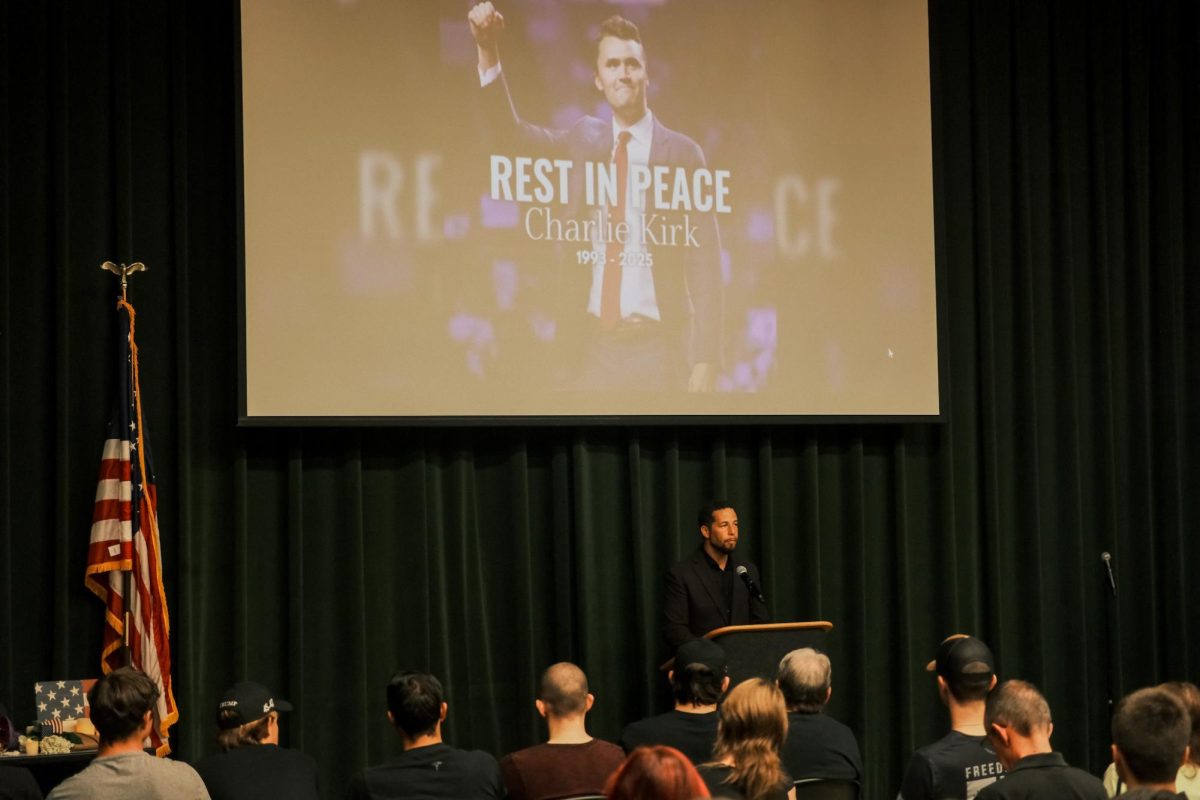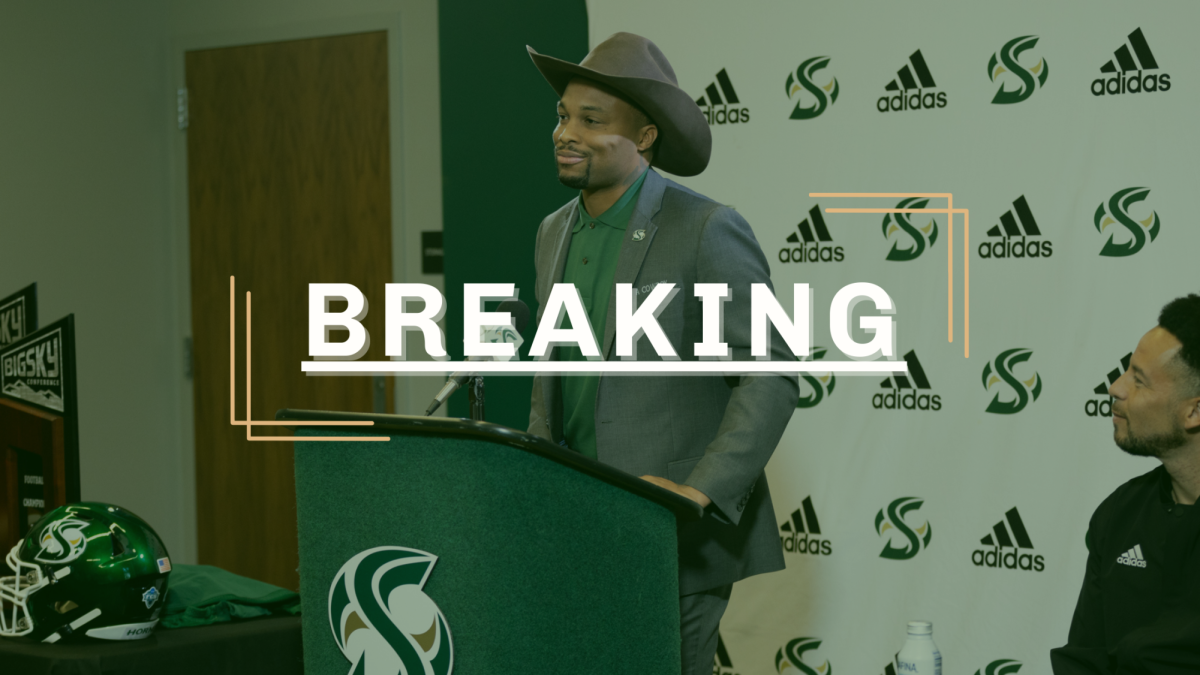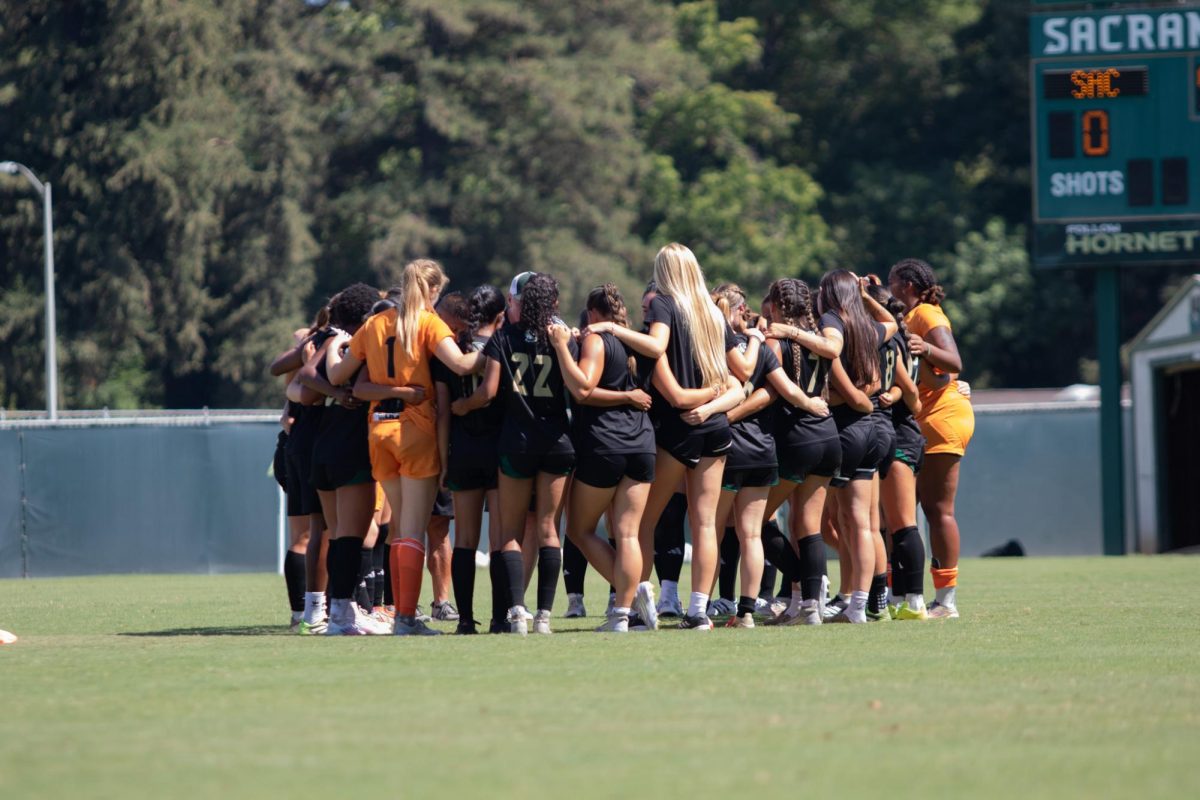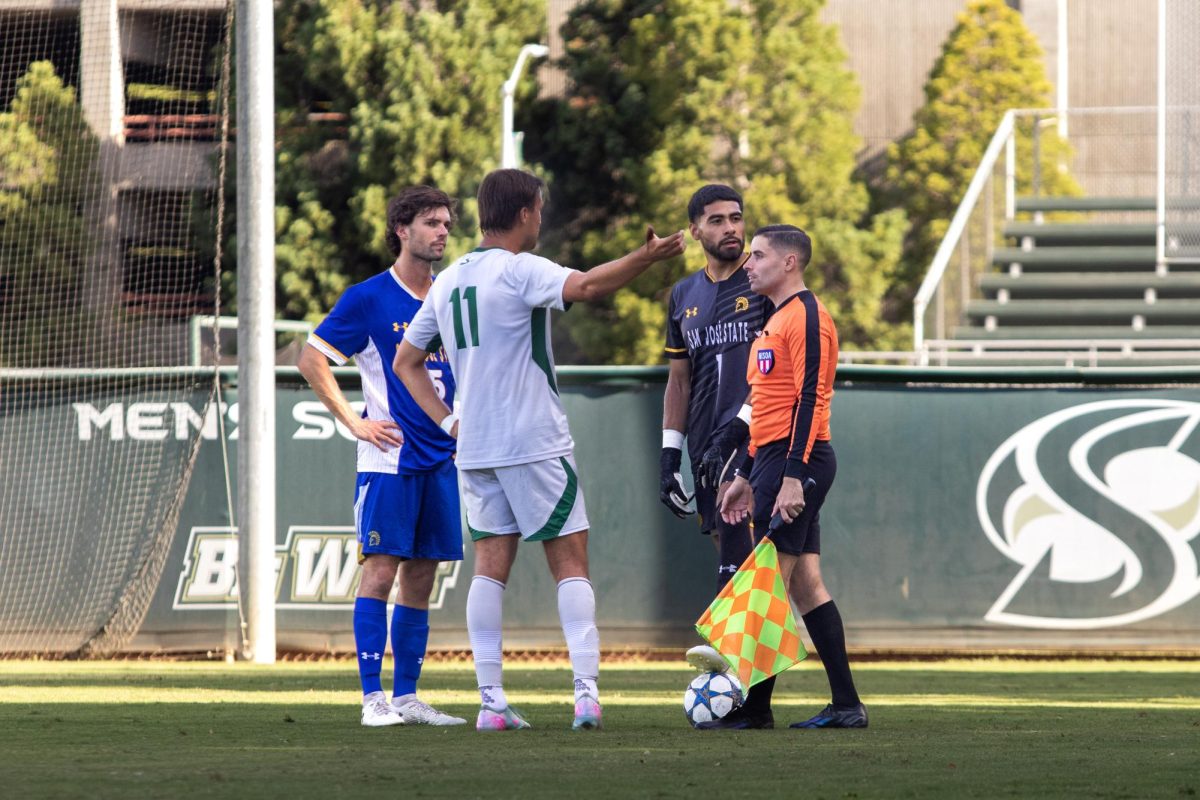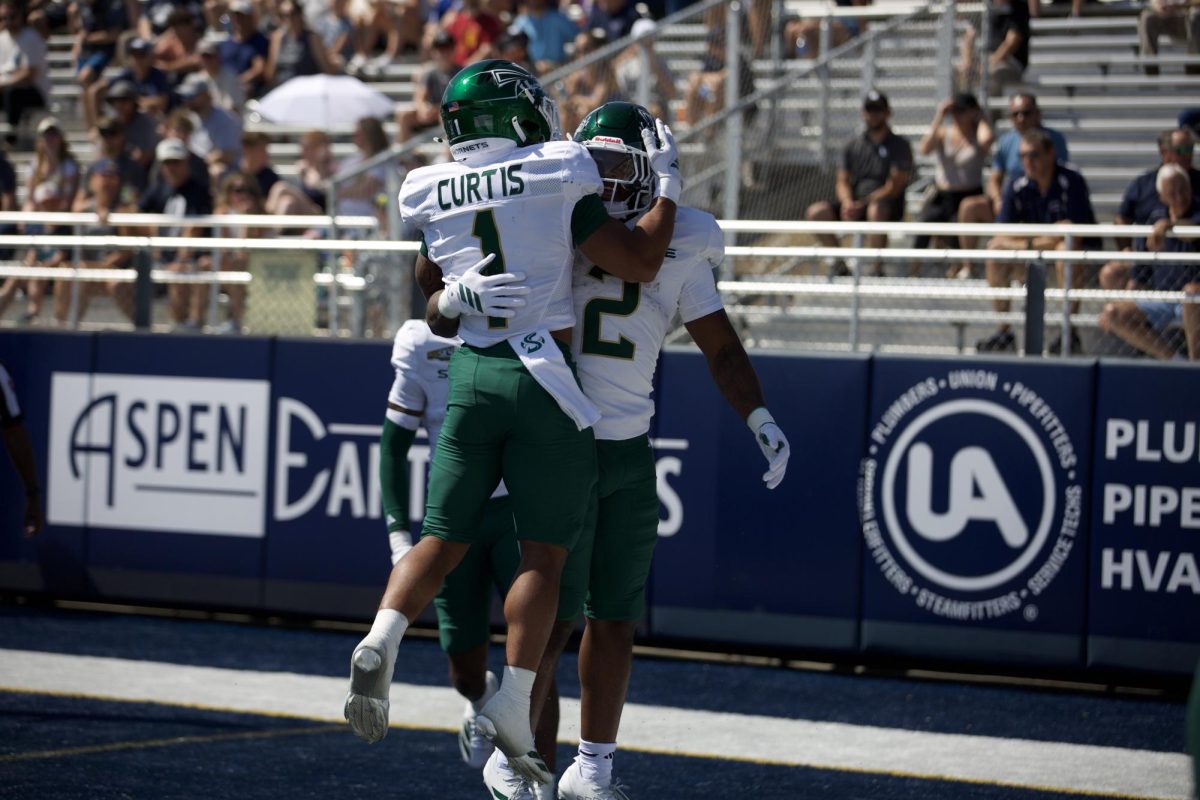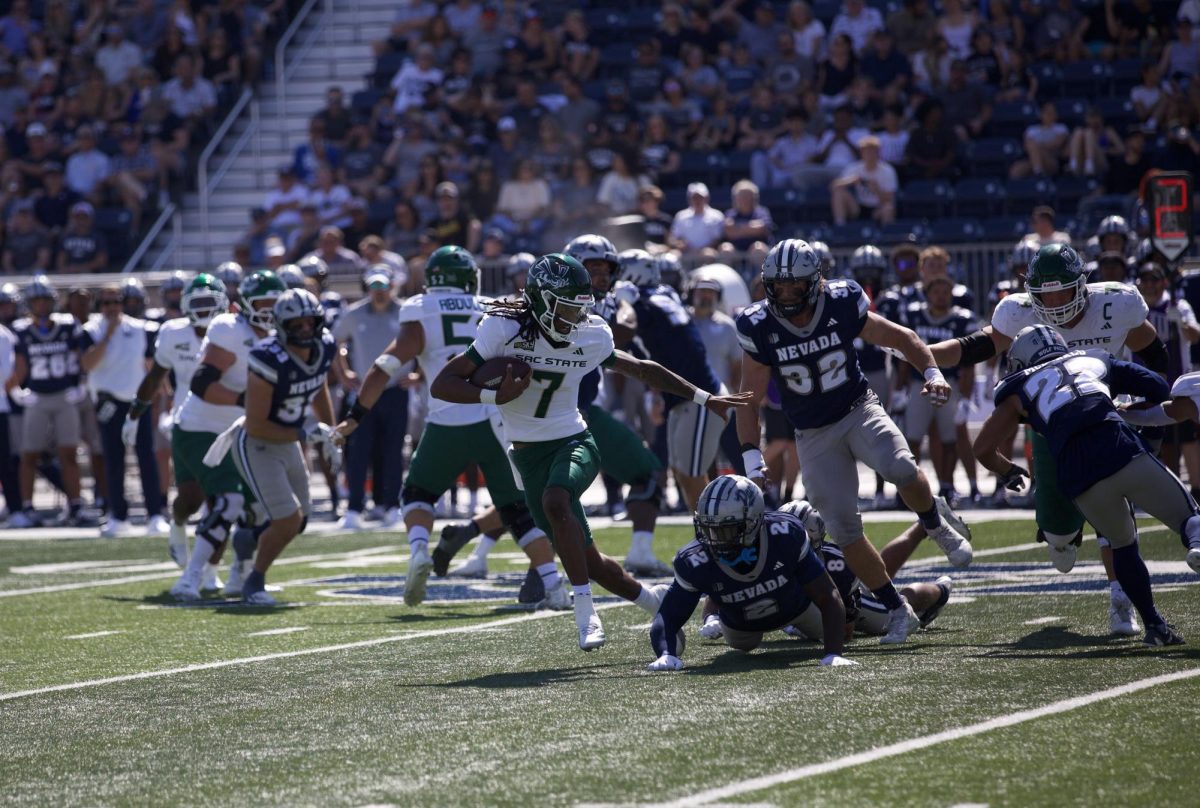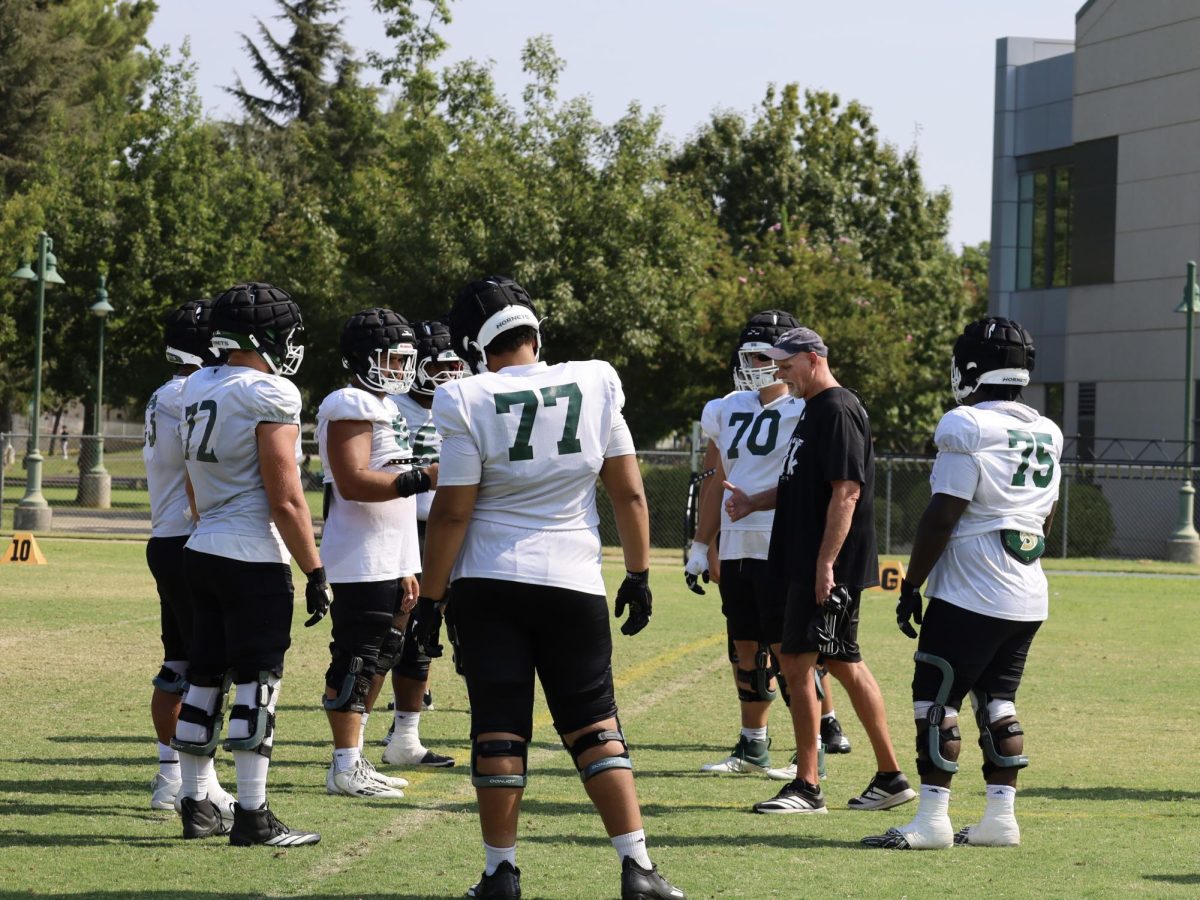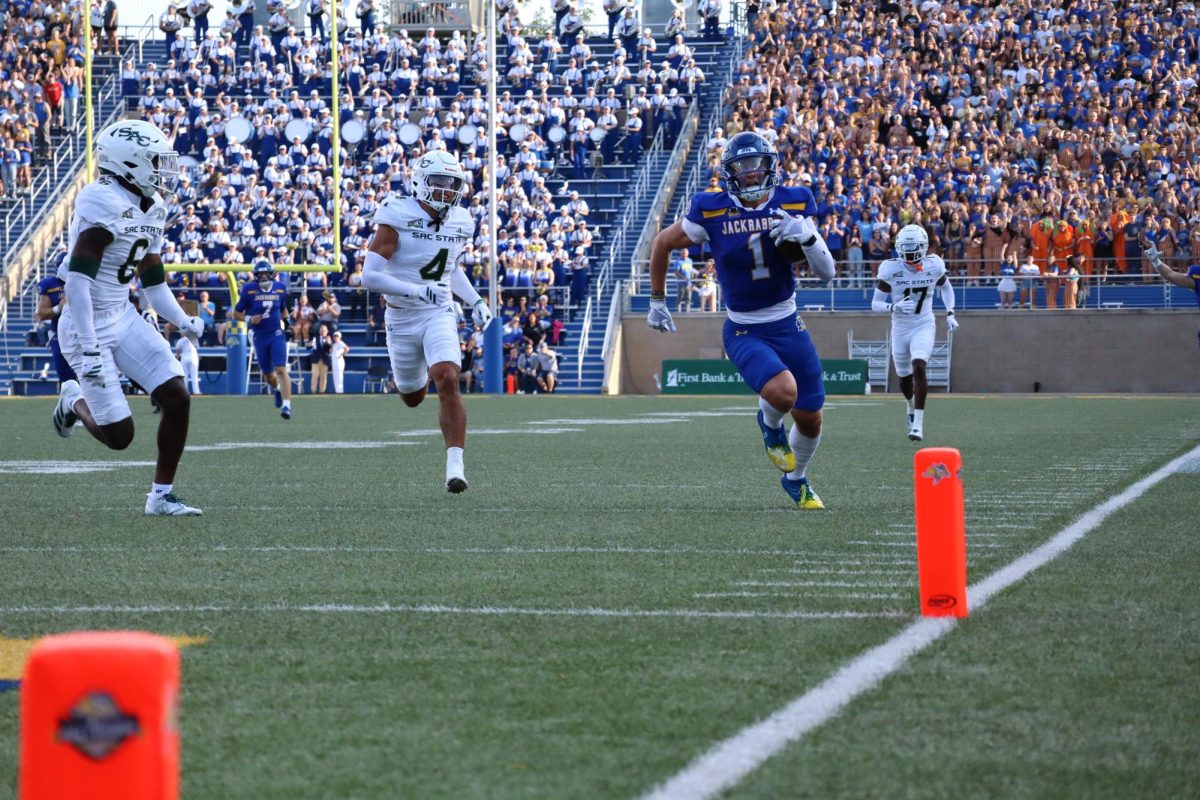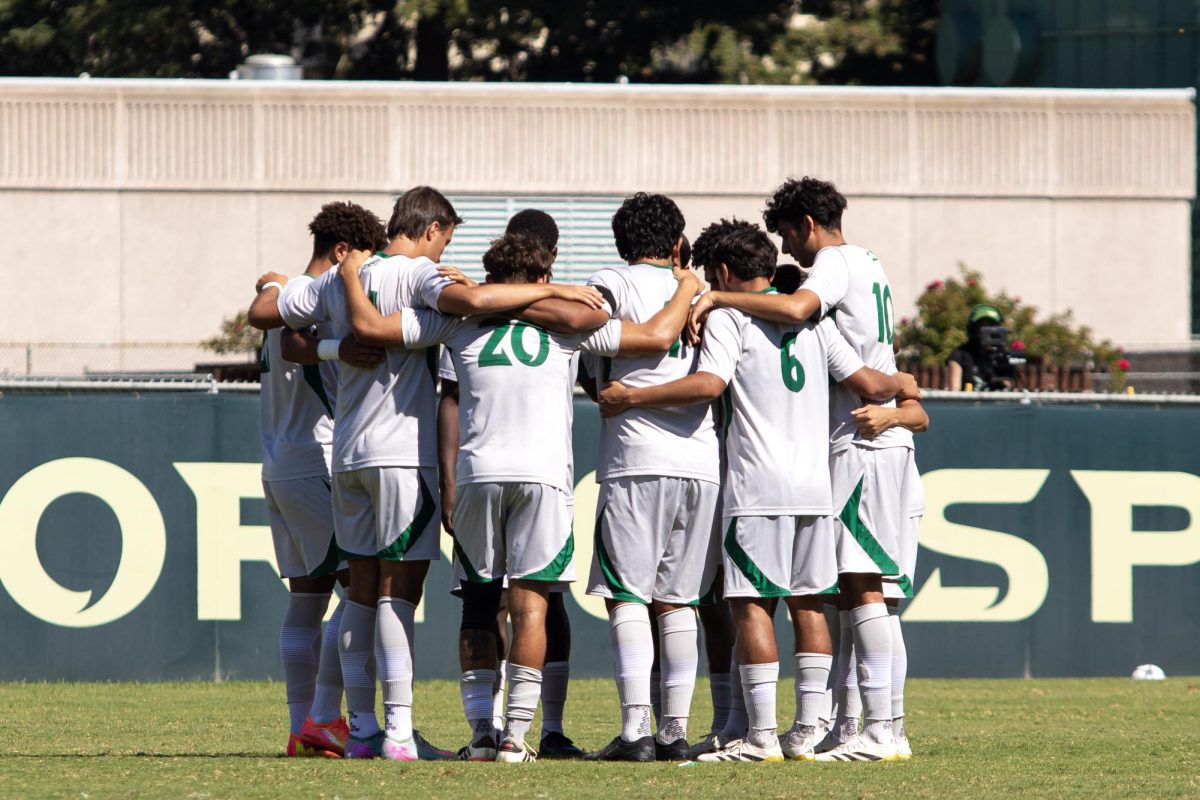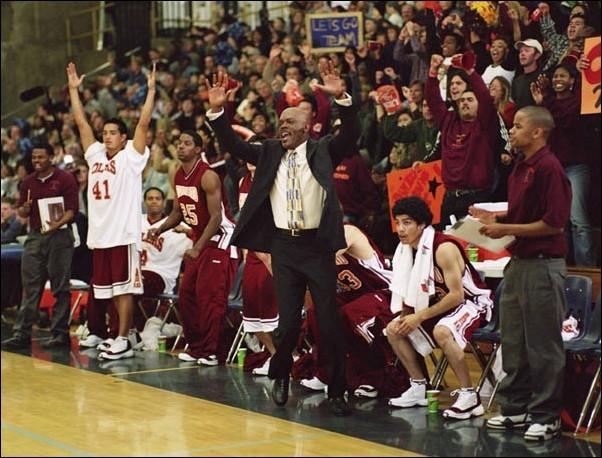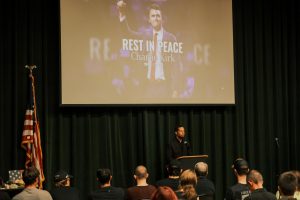Urban hoops flick formulaic
Image: Urban hoops flick formulaic:Samuel L. Jackson, center, stars in Paramount’s latest release, “Coach Carter.”Photo courtesy of Paramount Pictures:
January 26, 2005
In 1986 Metro-Goldwyn-Mayer released “Hoosiers,” a basketball movie based on the true story of a school’s improbable run to an Indiana state high school basketball championship.
Since its release, “Hoosiers” has been considered the gold standard in basketball movies, especially high school basketball movies. Recently Paramount released “Coach Carter,” starring Samuel L. Jackson as Richmond High basketball coach Ken Carter, a movie that could perhaps be best described as “Hoosiers” in the hood.
Carter caught national attention when, in 1999, he banned his team from playing basketball in midseason because many players failed to achieve certain goals including achieving a minimum 2.3 GPA. The team forfeited two games before it was reinstated. “Coach Carter” is the movie based on that 1999 season, following the team through their disastrous preseason, all the way to the state championship tournament.
The movie itself is relatively unoriginal, following the typical formula that has a coach taking a team full of misfit players and molding them through discipline into a winner, much like “Remember the Titans” and “Miracle.”
There is only one thing about the story that really stands out, and that only applies to residents of the greater Sacramento area. One of the characters in the movie is given a scholarship to play college basketball; the school that recruits him is Sacramento State. The end credits state that the player went to Sac State and obtained a communications degree. However, the Sac State men’s basketball team hasn’t had a player from Richmond in its Division I era (1991-present).
The movie even has all the usual cliches about being winners on and off the court. The ordinary nature of the story is perhaps the movie’s biggest flaw and it threatens to make it about as interesting as watching the San Antonio Spurs. However, just like the Spurs, a team that relies on players executing well, “Coach Carter” is a good movie that thrives because its actors execute their parts well.
In “Hoosiers,” the coach was Gene Hackman and in “Coach Carter,” it is Samuel L. Jackson, the gritty veteran of movies like “Pulp Fiction” and “The Negotiator.” There is a boatload of other actors that deliver good performances, including musician Ashanti, Rob Brown (Finding Forrester) and Rick Gonzalez (The Rookie, Old School), but it is Jackson’s stirring performance that carries the movie. Jackson is both dynamic and precise, delivering an impassioned and stirring performance far better that Hackman’s in “Hoosiers.”
The movie holds nothing back about life on the streets, showing the gritty life that many of the players lived in Richmond, a city located 10 miles northwest of Oakland. From the shooting death of a cousin of one of the team’s players to the decision of the girlfriend of another player to have an abortion, “Coach Carter” portrays life on the streets of Richmond as tough and unforgiving.
“Coach Carter” is predictable but still manages to maintain the tension of a close ballgame that comes down to the wire through great acting. Don’t expect to find any sort of cinematic risk, but it’s a feel-good movie that is well worth the price of admission.


